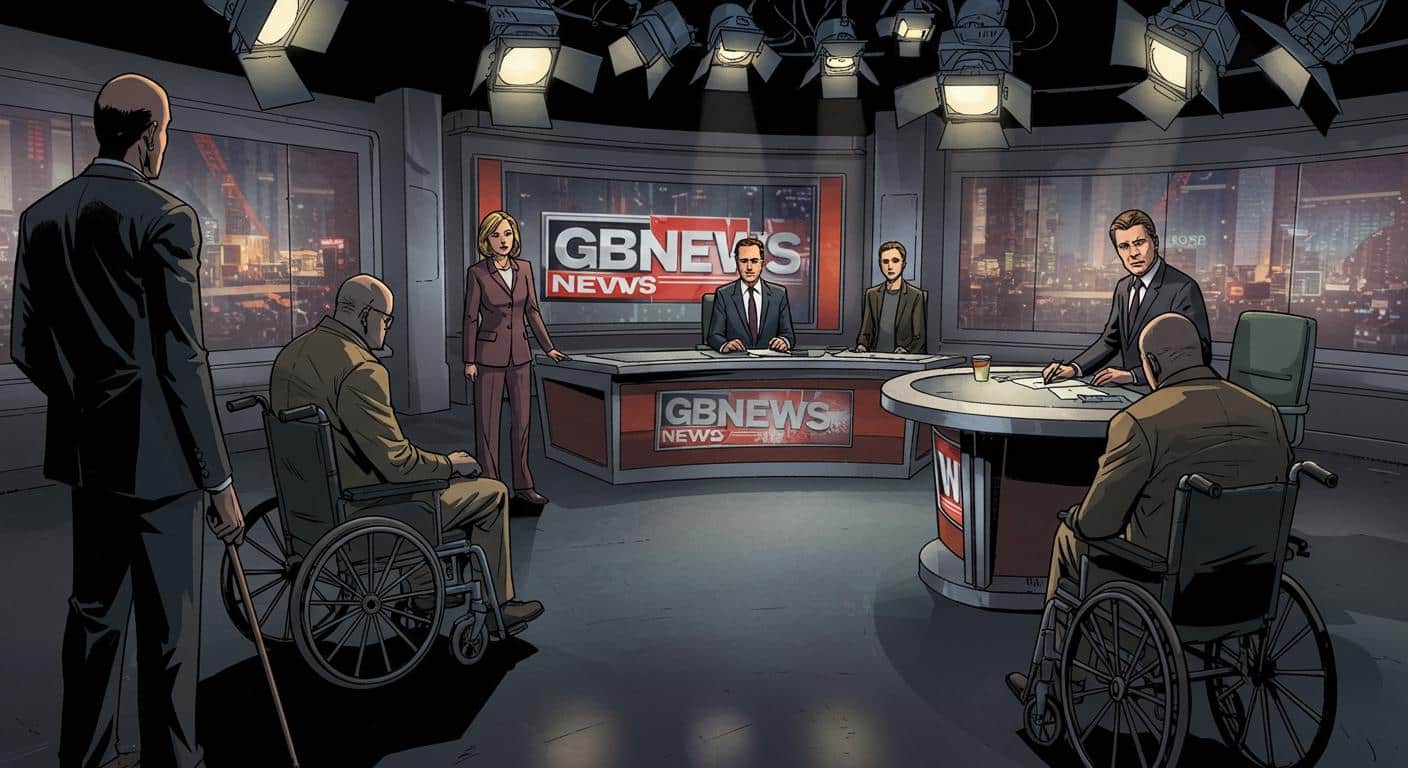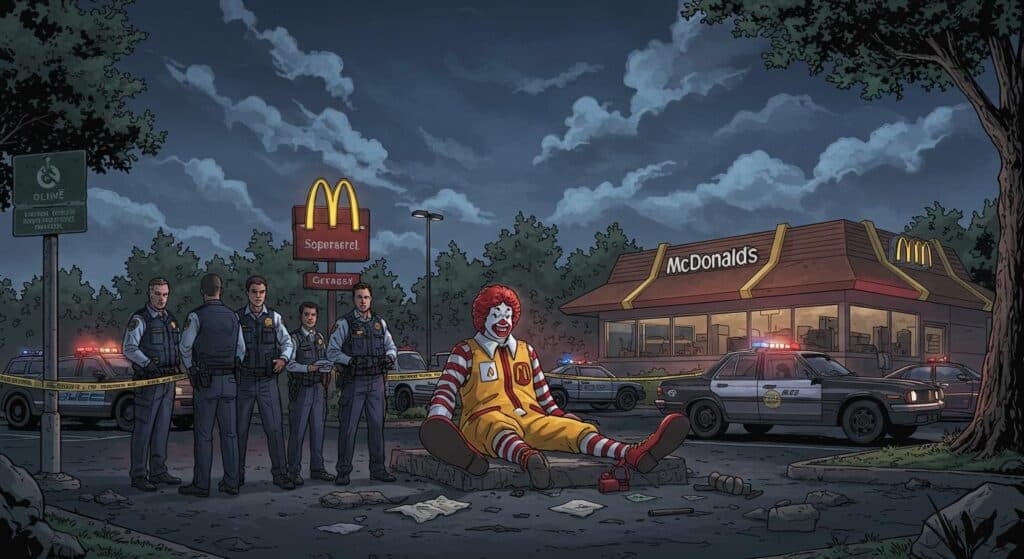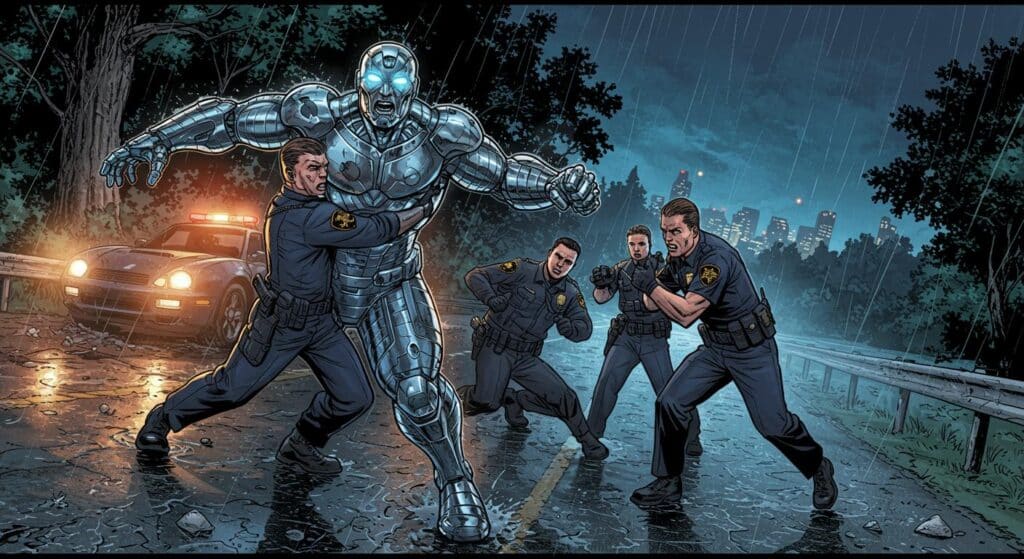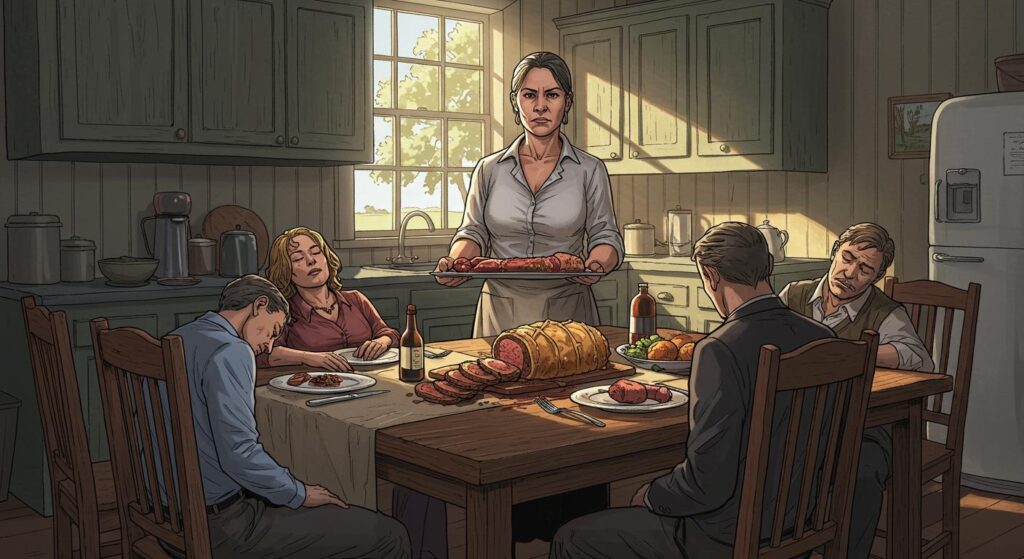According to reporting from Disability News Service, GB News has declared it sees “nothing that requires an apology” after a recent broadcast in which guest Lewis Schaffer suggested disabled benefit claimants could be starved—“or even shot”—as a solution to welfare spending. If you’re having flashbacks to particularly pointed episodes of black comedy, you’re not alone; but this aired live, on a nationally regulated broadcaster. One has to wonder if the lines between shock humor and actual policy commentary have finally smudged beyond recognition.
A Modest Proposal—Or Just Really Bad Taste?
As described by Disability News Service (DNS), the segment featured presenter Patrick Christys declaring that “welfare needs to be cut”—a claim made without acknowledgment of the stable ratio of working-age social security spending to GDP, a detail highlighted in DNS’s coverage. Christys pressed Schaffer for ideas on reducing disability benefits, asking pointedly how he’d get claimants “off their backside.” Schaffer’s reply? “Just starve them, that’s what people have to do, that’s what you’ve got to do to people, you can’t just give people money.” For extra punch, he added: “What else can you do? Shoot them? I mean, I’d suggest that, but I think that’s maybe a bit strong.” Christys responded, “Yeah, it’s just not allowed these days.”
It’s worth noting, as DNS did, that Schaffer refers to himself as everything from virologist to climatologist on X/Twitter, though he’s generally billed elsewhere as a comedian and broadcaster. Whether this is a case of a comic intentionally courting controversy, or simply reaching for a laugh in a place it absolutely wasn’t wanted, is something viewers can debate. GB News’s official response, also shared with DNS, was that the remarks were “clearly comedic,” and so, they believe, require neither apology nor further explanation.
You have to wonder about the planning stages here, or lack thereof.
Historical Echoes and Regulator Shrugs
DNS reports that criticism was swift. YouTuber “Maximilien Robespierre” was among the first commentators to call the exchange “dangerous rhetoric,” and Dr Natasha Hirst, representing disabled members for the National Union of Journalists, told DNS the comments were “appalling and unacceptable,” and that suggesting violence against disabled people “has real-life consequences by emboldening hate speech and harassment.” Dr. Hirst further called on Ofcom, the broadcast regulator, to investigate with an awareness of the wider history of exclusion and abuse faced by disabled people in daily life.
Ben Scott, a disabled campaigner quoted in DNS, didn’t mince words—he likened Schaffer’s statements to the 1930s Nazi “useless eater” rhetoric that led to the Aktion T4 program and the systematic murder of hundreds of thousands of disabled Germans. Scott’s criticisms prompted Schaffer to double down on social media, repeating his comments about starving or shooting disabled people to lower costs, as documented by DNS.
This episode, DNS notes, comes just three months after the Department for Work and Pensions published figures on the economic “cost” of disabled people unable to work—data widely criticized as uncomfortably close in tone to 1930s propaganda. It’s not much of a stretch to see how people might draw parallels, especially with these new “jokes” in play. Are the echoes between history and present-day commentary really just accidental feedback, or something more intentional?
Ofcom confirmed to DNS that it has received complaints about the broadcast, though the number remains below 50, and the organization is still “assessing complaints…against our broadcasting rules before deciding whether or not to investigate.” Earlier in DNS’s report, it’s mentioned that Ofcom has previously been criticized for clearing two TV shows that attacked benefit claimants, leading to accusations from campaigners that the regulator has failed millions of disabled people. Is public outcry falling on well-insulated ears?
Satire’s Shadow and Social Consequence
The question that lingers—perhaps uncomfortably—is where satire ends and social harm begins. GB News insists that Schaffer’s remarks, clothed in the language of comedy, are beyond reproach. Critics cited in DNS argue that “just joking” is no shield when old, dangerous tropes are carted out on prime-time television, especially not against a backdrop of ongoing cuts and policy debates targeting the same community.
Is it possible that in the pursuit of outrage—or maybe just ratings—broadcasters have started to blur the line between dark humor and normalized hostility? Schaffer’s own apparent bemusement at the reaction, continuing to trumpet his comments on social media, seems to suggest either a deliberately provocative edge or a complete lack of self-awareness regarding their impact.
In the end, as Disability News Service points out, this isn’t an isolated incident. When disabled people, campaigners, and journalists recognize the same themes cropping up decade after decade, can we really just chalk it up to comedic misfire? When even the regulator responds with little more than a form reply, whose job is it to draw that line?
So, does “comedy” justify anything, or are we just watching another round of cultural desensitization—one bad joke at a time? If broadcasters find nothing to apologize for, maybe the silence says more than the punchline ever could.







